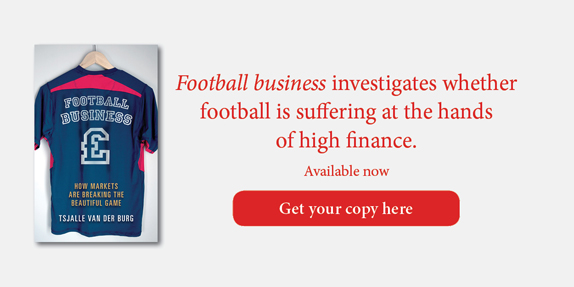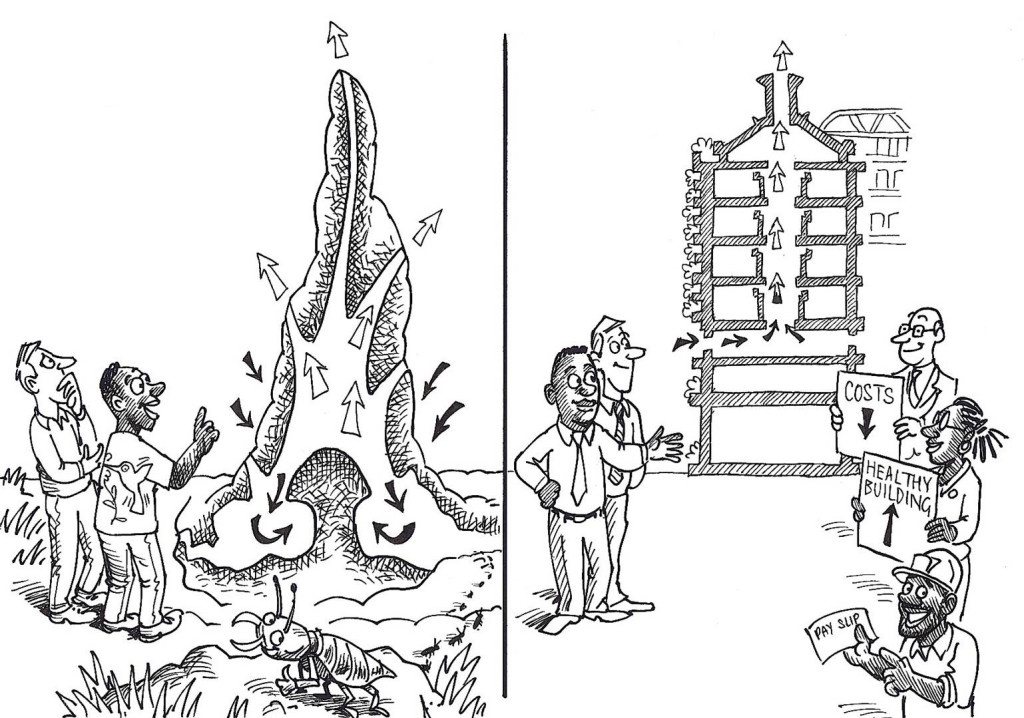Business and finance
Victoria Beckham named Britain’s most successful entrepreneur
27 October 2014 by Catherine Holdsworth in Business and finance, Current events, Entertainment
Twenty years ago, an unknown girl band released their first single, Wannabe, and posed on the stairs of the St Pancras Hotel to promote ‘Girl Power’. Much has changed in two decades but one thing is certain, Victoria Beckham has made the incredible transformation from Posh Spice to head of the Posh London crowd and, in turn, Britain’s most successful entrepreneur, so listen up Apprentice contestants!
Last month, Beckham, also known as VB, opened her first flagship store in London. She has generated substantial profits for her company, and was recently named as the Greatest Style Icon at this year’s London Fashion Week.

It is the ultimate reinvention. When one thinks of how many members of pop groups have tried to make it in Hollywood, floundered on Celebrity Big Brother, or tried their hand at ‘writing’ novels, VB seems to be the most successful of all of them. No longer do we look at her and think of the Spice Girls; here is a woman who has taken the fashion world (and in turn the business world) by storm.
She is now a UN Goodwill ambassador and addressed the organization last month, which meant that she missed the opening of her London store. She is everywhere, it would seem, with her fingers in a lot of pies. But then again, it’s all for a good cause. Never did we think that the woman in the little Gucci dress would become one of the world’s most powerful women.
It has been well knownfor years that Brand Beckham has been successful, as she and David brough out his and hers perfumes while also pursuing profitable modelling careers. They are the idealistic couple but no longer do they have to sell their stories to OK! magazine. They have reached new levels of success and in turn, respectability.
Whatever you think of VB (and at Infinite Ideas we love her) you have to admit that the woman is talented. Yes, it takes a lot of money to be successful, it takes a well known brand to make it in the world of fashion, but she’s also done it with lots of hard work and dedication to her line.
VB is Catherine’s personal hero, and now we can see why. Perhaps in another ten years she will be Prime Minister.
If you want to manage your own company like VB, the best place to start is probably with a book on management models. Perhaps you will be on next year’s list … otherwise we would advise marrying someone rich and building your own empire!
Feminism suffers a setback in Japan
20 October 2014 by Catherine Holdsworth in Business and finance, The Diversity Dashboard
We’re all familiar with the British MPs’ expenses scandal, which shocked tax payers, revealing that duck houses were more important uses of our money than improvements to the NHS. Two of Japan’s ministers have stepped down today after it was revealed that they had taken advantage of the claims system. However, this is not merely a blow for the government, but for feminism and women’s rights in Japan.
One minister to resign was hotly tipped to be the country’s first female leader, which would have bolstered the feminist movement in Asia and promoted gender equality in a country slightly late to that party.

Elidh Milnes and Dr Deborah Swallow’s book, The diversity dashboard, offers advice to women wishing to do business in Japan and how to avoid the pitfalls of working in an unfamiliar culture.
Culture crash
Starting a new job is always daunting; moving to a new country even more so. Else, a middle-aged Danish lady, has made the move to Tokushima, Japan, in order to experience a new culture and progress her career. Before she moved to Japan, she was the general manager in a popular soft-drink company. Else led by example and encouraged her staff to work in an inclusive work environment where each member of the team was treated equally and each role was viewed as just as important as the next. She was more like a mentor than a manager and this put a spring in her step each morning.
On the first day at work in the company in Tokushima, Else was greeted by three well-dressed men: not a woman in sight except for the girl at reception. Instantly she sensed the male-dominated environment and over the next few weeks she began to feel insignificant. Although no one said anything directly to Else, she found her points of view were shunned, her self-esteem bruised, and she felt put down. Her management style was achieving nothing and she was getting nowhere.
Culture tip
In Japan, hierarchy is an all important feature of management. An English male colleague who had been working in the firm for two years explained, ‘The work culture in Japan makes a clear differentiation between male and female roles. It is a rigid structure and although multinational companies are more used to women in the workforce, the traditional Japanese companies still only have men as senior managers.’
Cultural insight
A recent survey suggests that: ‘Gender inequality causes resentment, anger and reduced life satisfaction more among European and American women than among Chinese women, who value gender equality less. Chinese women consider gender inequality to be less unjust and less unfair.’
One hopes that this does not harm the feminist movement in Japan and that social progression continues apace. We may have to send over Germaine Greer!
The rising price of football
15 October 2014 by Catherine Holdsworth in Business and finance, Football Business
If you’ve grown up in the UK then you’ll know the passion that we have for our home teams. Football has become the unofficial national sport of this country and fans flock in their thousands to each game, cheering on their teams come rain or shine.
This afternoon, Dan Walker and Sarah Brett will discuss the rising price of football on BBC 5 Live. It will be interesting to see what they make of the rise in costs and whether they believe they are spread fairly. Despite the recent recession the costs associated with supporting a football team continue to rise. Many people across Britain are now having to pay high sums to attend games. This, however, is not the end of the cost. Think about away games, travelling to different stadiums, buying the new season’s strip, and a pie at half time. All these expenses add up; football starts to look like that cute puppy you adopted but who turned out to be a Great Dane, eating you out of house and home.
Economist Tsjalle van der Burg points out that even if fans decide to stay at home and avoid the ridiculous cost of a season ticket, they still have to pay high prices to watch the matches on TV. So where does all this money go?
In Van der Burg’s book, Football business: how markets are breaking the beautiful game, he highlights the effect that money has had on the sport.
What would have happened if Manchester United, the English champions of 2013, had played Burnley, the champions of 1960? The answer is clear: the Mancunians would have beaten the Clarets 158–1. That is, if the score had been expressed in terms of money. The Clarets made £136,000 in 1960 (or, to be precise, in the season ending that year). In that year £1 bought you seventeen times as much as it would in 2013. So £136,000 in 1960 was worth as much as £2.3 million in 2013. However, Manchester United earned £363 million that year, in other words 158 times as much.
The other English clubs were earning less than United in 2013. However, the average Premier League club received, after correcting for inflation, about fifty-three times as much as the average club in the English top division of 1960. Not a bad score. Elsewhere in Europe, professional football has also seen remarkable growth.
It all seems to be a great success. But is it? The revenues of car manufacturers have also exploded since 1960. Consumers spend much more on cars than they used to and they get a lot in return: a wide choice of cars is produced and the cars are of superior quality. One could assume that the same thing is going on in football, when in fact, the quality of the basic product – football matches – have not improved over the years.
There is more and more money in football, and this has changed the character of the game. Everything has become more business oriented. Supporters have to pay more to watch matches. The distance between clubs and their supporters has grown. Some clubs are owned by entrepreneurs in search of profits. And these trends seem set to continue into the future. Some see the money in the game today as a curse. They yearn for the past when ‘everything was better’.
Top 10 management models for your business #10: The blue economy, Gunter Pauli (2010)
8 October 2014 by Catherine Holdsworth in 100+ Management Models, Business and finance
by Fons Trompenaars and Piet Hein Coebergh, co-authors of 100+ Management Models.
Problem statement
How do we turn poverty into development and scarcity into abundance with what we have?
Essence
Gunter Pauli is an entrepreneur, author and initiator of the Blue Economy. His concept is about stimulating entrepreneurship while setting new and higher standards of sustainability, and also keeping associated costs down. The goal is high: to create 100 million jobs and substantial capital value through 100 innovations before 2020. This approach contrasts with the Red Economy (socialist planning, which didn’t work) and the Green Economy (which tends to require strong investments in unclear projects, benefiting only the happy few). The Blue Economy business model wants society to shift from scarcity to abundance ‘with what we have’, by tackling issues that cause environmental and related problems in new ways. The theory highlights benefits in connecting and combining seemingly disparate environmental problems with open-source scientific solutions based upon physical processes common in the natural world, to create solutions that are both environmentally beneficial and which have financial and wider social benefits.
How to use the model
The concept of the Blue Economy is supported by the methodology of the Zero Emissions Research and Initiatives network (ZERI), including the following sets of instruments:
- Five kingdoms of nature: bacteria, algae, fungi, animals, plants; a classification that is inspired by the work of biologist Lynn Margulis;
- Five design principles, to work with these five kingdoms of nature (all following the key idea that there is no such thing as waste);
- Five intelligences: emotional, academic, artistic, eco-literacy (systems thinking) and capacity to implement;
- Twelve axioms of economics: principles of purpose, growth, productivity, cashflow, price, quality, competitiveness, place, innovation, diversification, management and thermodynamics.
More information can be found at www.zeri.org.
As for combining seemingly disparate environmental problems with open-source scientific solutions, theories about innovation can be used, as well as creativity techniques like brainstorming, bi-sociation, lateral thinking and Yellow Thinking.
Results
The ZERI movement is engaged in a wide range of projects that are recorded and shared online through www.theblueeconomy.org.
Comments
For academic as well as practical purposes, initiatives like this one contribute to a better
understanding of what sustainability can mean for society in practice.
Literature
Blackburn, W.R. (2007) The Sustainability Handbook: The Complete Management Guide to Achieving Social, Economic and Environmental Responsibility, Washington, Environmental Law Institute.
Hitchcock, D., Willard, M. (2009) The Business Guide to Sustainability: Practical Strategies and Tools for Organizations, New York, Earthscan.
Pauli, G. (2010) Blue Economy – 10 Years, 100 Innovations, 100 Million Jobs, Taos, Paradigm Publications.
Is football too expensive for the fans?
1 October 2014 by Rebecca in Business and finance, Football Business
We read with interest yesterday a story that Virgin Media has asked Ofcom to investigate the way premier league rights are sold. According to Virgin the auction process is driving up prices and causing ‘significant consumer harm’. In his book Football Business economist Tsjalle van der Burg probes this question and comes up with the radical solution that all football on TV should be free:
What would happen if the EU introduced a ban on pay TV for all live matches and highlights shown in EU countries, so that they became free again? A ban would naturally mean that broadcasters would make less money. Therefore, they would pay the clubs less for their broadcasting rights. So the clubs would earn less and would have to moderate their expenditure. They could easily do this by paying the players less so that, on balance, clubs would not be disadvantaged. In the days before pay TV, clubs basically broke even, with lower income and lower expenditure and George Best producing beautiful play. So a pay-TV ban is perfectly possible. Indeed, because there is surplus money in the sector – more money than is needed for it to function as it should – a pay-TV ban will not harm the game.
But how would TV stations finance the broadcasts? That’s simple: they would use the revenue from commercials. In the Netherlands, where many football matches are still available free of charge, the highlights of matches in the second professional league have been broadcast free-to-air for many years by a private company. The league is not extremely popular, with an average match attendance of about 4,000. This means that advertising can generate sufficient revenue for broadcasting all football matches which are at least as important as those of the second Dutch level. So we would be able to have a pay-TV ban for all these broadcasts while being sure they will remain on the air. Additionally, this also means there is no need for broadcasters to use taxpayers’ money to show football matches.
So it is possible to have a pay-TV ban for all important football matches. Indeed, there is only one drawback: players (and coaches) would earn less.
The benefits of a pay-TV ban would be considerable. The first advantage concerns the football fans who would watch the broadcasts anyway: they would get them for free. Their savings would be more or less equal to what the players (and coaches) would lose through reduced salaries. If the savings for those fans were the only advantage of the ban, the question of whether we should have a ban would be a question of fairness only.
But the ban also has another advantage. This concerns football fans who do not watch (certain) football matches on pay TV because the subscription fee is simply too high for them. These fans will watch the broadcasts if they are free, because football gives them pleasure. For these people, a pay-TV ban would mean more pleasure. At the same time, the broadcasters’ costs would not rise when more people turned on their television sets to watch football. So with a pay-TV ban we get more pleasure without any extra costs. This means that on balance the net effect is that the football community would be better off.





